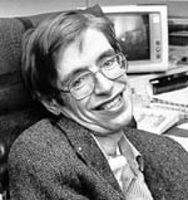
The Cosmos lost a star on Wednesday, 14th of March 2018. The world-renowned scientist, physicist, and author Stephen William Hawking, who has proven the boundless possibilities of what the human mind can achieve even in face of adversities, died at the age of 76 at his home in Cambridge, United Kingdom. Stephen William Hawking was born in Oxford, United Kingdom, on January 8, 1942, to Frank Hawking, a biologist, and Isobel Hawking, a medical research secretary. He was the eldest of four children born to the family.
At the age of eleven, Stephen attended St. Albans School and then went on to University College, Oxford in 1952. Stephen wanted to study Mathematics as against his father’s choice of Medicine. The unavailability of Mathematics at University College, made him pursued physics instead. After three years without much work done, he was awarded a first class honors degree in natural science. In 1962, he began his graduate research in cosmology at Cambridge University. During his graduate research, at the age of 21, Stephen was diagnosed with ALS, a form of Motor Neuron Disease. The doctor had told him he had two years to live.
It is safe to say that the disease helped turn him into the noted scientist he became. Before the diagnosis, Hawking was not very concerned about his studies. “Before my condition was diagnosed, I had been very bored with life. There had not seemed to be anything worth doing”, he said. With the sudden realization that he might not even live long enough to earn his Ph.D., Hawking poured himself into his work and research.
In spite of being wheelchair-bound and dependent on a computerized voice system for communication, Hawking was able to research and publish books, some of which includes; A brief history of time, The universe in a nutshell, A briefer history of time, The grand design. Professor Stephen Hawking had thirteen honorary degrees.
His works were groundbreaking in physics and cosmology. His books helped to make science accessible to everyone. Stephen combined well his family life (he has three children and three grandchildren) with his research into theoretical physics, in addition to an extensive program of travel and public lectures despite his health challenge.
He once said, ‘It would not be much of a universe if it wasn’t home to the people you love.’ The universe and all of it would miss him for his great impact in discoveries, as we have all come to love him not only for his discoveries but his strength and resilience.

